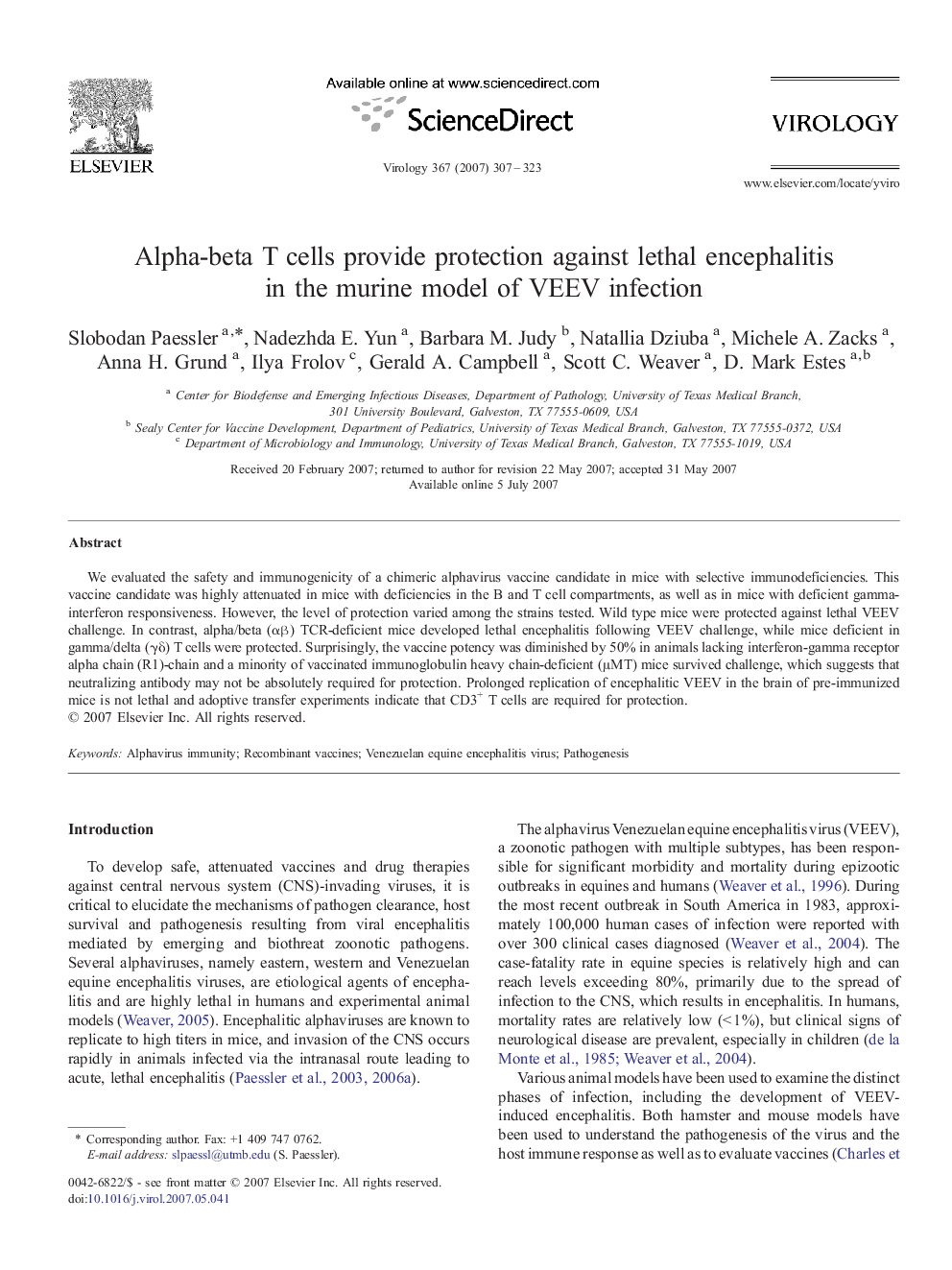| Article ID | Journal | Published Year | Pages | File Type |
|---|---|---|---|---|
| 3425984 | Virology | 2007 | 17 Pages |
We evaluated the safety and immunogenicity of a chimeric alphavirus vaccine candidate in mice with selective immunodeficiencies. This vaccine candidate was highly attenuated in mice with deficiencies in the B and T cell compartments, as well as in mice with deficient gamma-interferon responsiveness. However, the level of protection varied among the strains tested. Wild type mice were protected against lethal VEEV challenge. In contrast, alpha/beta (αβ) TCR-deficient mice developed lethal encephalitis following VEEV challenge, while mice deficient in gamma/delta (γδ) T cells were protected. Surprisingly, the vaccine potency was diminished by 50% in animals lacking interferon-gamma receptor alpha chain (R1)-chain and a minority of vaccinated immunoglobulin heavy chain-deficient (μMT) mice survived challenge, which suggests that neutralizing antibody may not be absolutely required for protection. Prolonged replication of encephalitic VEEV in the brain of pre-immunized mice is not lethal and adoptive transfer experiments indicate that CD3+ T cells are required for protection.
